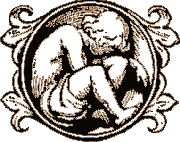
Jan van Ruysbroeck (1294.-1381), who led an active life as a priest, taught that the proper way to find God is to seek him within us.
Our inner union with God was for Ruysbroeck an indisputable fact. But how do we become aware of it?
Ruysbroeck distinguishes three stages.
Ruysbroeck does not say that God becomes more united to us as we progress in holiness. God is already united to us. God is united to us all the time; it is only our awareness of this union that increases. For this is precisely the difference between God and the created beings of the world: God is within.
"God is more interior to us than we are ourselves.
His acting in us is nearer and more inward than our own actions.
God works in us from inside outwards;
creatures work on us from the outside."Jan van Ruysbroeck, Spiritual Espousals, complete works, Mechelen 1934, vol. 1, p. 148. English version New York 1953.
How are we to understand this inner presence of God?
Ruysbroeck explains it by a reference to the creation story in the Bible. In Genesis 1,27 we read:
"God created the human person in his own image.
In the image of God he created him.
Male and female he created them."
Our human personality reflects God's personality. The image of God shapes us from within.
To understand Ruysbroeck's point, think of a daughter who looks like her mother. She received the facial expression and other features of her mother, not by some external imprint, but by the genes in her cells. The daughter carries the image of her mother because-as we know now-she has in the nucleus of every cell of her body copies of her mother's chromosomes. This is a modelling from inside. This is, Ruysbroeck tells us, how God models us.
"God's image supports the essence and personality of all human beings.
Every person possesses it totally and undividedly.
And so we are all one, united in our eternal image, which is the image of God;
an image which is for all of us the origin of life and existence.
Our created being is anchored in that image as in its eternal cause."
Mirror of Eternal Beatitude, complete works, Mechelen 1934, vol. 3, p. 166..
"According to his or her creatureliness the human person undergoes the imprint of God's eternal image without ceasing; just like an untarnished mirror which always reflects the image and which without ceasing renews our knowedge of our appearance with new clarity. This essential unity of our spirit with God does not exist in itself. It rests in God, and flows from God, and hangs in God, and returns to God as its eternal source."
"The human spirit receives according to its most interior and highest being, in naked nature, the imprint of God's eternal image and God's own radiance without ceasing. The human spirit is a perpetual dwelling of God which God inhabits all the time."
Spiritual Espousals, complete works, vol. 1, pp. 203-204.
"Our essential and highest individuality lies in God. For all creatures exist and live and are preserved by being united to God. If they were to be separated from God, they would return to nothingness. We possess this divine individuality in ourselves, yet beyond ourselves, as the beginning and support of our existence and our life."
Spiritual Espousals, complete works, vol. 1, p. 145.
"God's transcending nature must be understood as oneness and
simplicity,
unscalable height and unfathomable depth,
incomprehensible
breadth and infinite length,
dark silence and ferocious energy."
The Sparkling Gem, complete works, vol. 3, pp. 6-7.